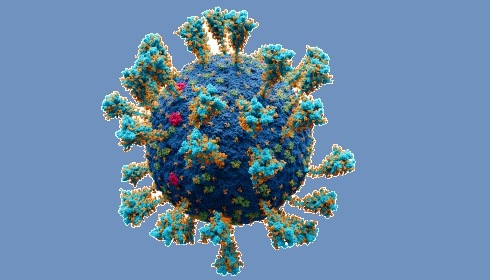
NIH-Funded Study Suggests COVID19 infection weakens immune response to vaccination
A study discovered that the magnitude and quality of a key immune cell's response to two doses of the Pfizer-BioNTech COVID-19 vaccine were significantly lower in people with prior SARS-CoV-2 infection compared to people without earlier infections.
Furthermore, the level of this immune cell that targets the SARS-CoV-2 spike protein in unvaccinated people with COVID19 was significantly lower than in vaccinated people who had never been infected.
These findings of the study, co-funded by the National Institute of Allergy and Infectious Diseases (NIAID), part of the National Institutes of Health, was led by Dr Mark M. Davis, suggest that the virus interferes with a critical immune-cell response, were published in the journal Immunity recently.
The researchers said that people who recover from SARS-CoV-2 infection and then get vaccinated are more protected than those who did not receive the vaccine.
According to an NIAID statement, Dr Davis and colleagues created a highly-sensitive tool to study how immune cells known as CD4+ and CD8+ T cells respond to COVID19 infection and vaccination. These cells help to prevent COVID19 by coordinating the immune system's response to the virus and killing infected cells. The research team created the tool to detect T cells that target any of dozens of distinct regions on the virus's spike protein, as well as some other viral regions. Parts of the SARS-CoV-2 spike protein are used in the Pfizer-BioNTech vaccine to elicit an immune response without causing infection.
The investigators studied CD4+ and CD8+ T-cell responses in blood samples from three groups of volunteers. One group had never been infected with SARS-CoV-2 and received two doses of the Pfizer-BioNTech COVID19 vaccine. The second group had previously been infected with SARS-CoV-2 and received two doses of the vaccine. The third group had COVID19 and was unvaccinated.
The researchers found that vaccination of people who had never been infected with SARS-CoV-2 induced robust CD4+ and CD8+ T-cell responses to the spike protein of viruses. In addition, these T cells produced multiple types of cell-signalling molecules called cytokines, which recruit other immune cells, including antibody-producing B cells, to fight pathogens.
People who had been infected with SARS-CoV-2 before vaccination, on the other hand, produced spike-specific CD8+ T cells at much lower levels and with less functionality than vaccinated people who had never been infected, the researchers noted.
Moreover, the researchers observed substantially lower levels of spike-specific CD8+ T cells in unvaccinated people with COVID-19 than in vaccinated people who had never been infected.
Taken together, the findings suggest that SARS-CoV-2 infection damages the CD8+ T cell response, an effect similar to that observed in previous studies showing long-term immunological damage after infection with viruses such as hepatitis C or HIV.
The researchers concluded that the new findings highlight the need to develop vaccination strategies to specifically boost antiviral CD8+ T cell responses in people previously infected with SARS-CoV-2.